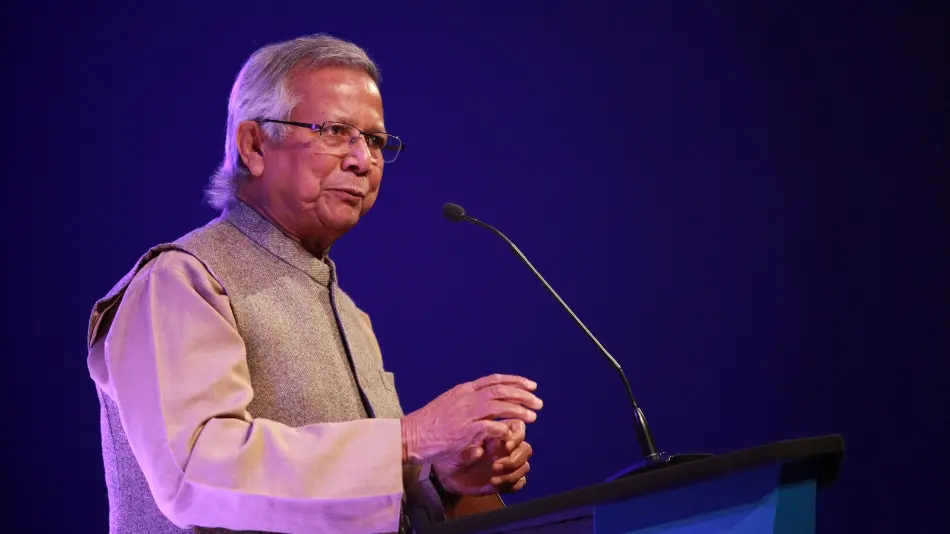Muhammad Yunus, winner of the 2006 Nobel Peace Prize, returned to Dhaka, the capital of Bangladesh, on Thursday (8 August 2024) to take over the country’s interim government, Reuters reported.
The return comes after violent student protests led to the resignation and flight of the country’s Prime Minister, Sheikh Hasina, to India on Monday (5 August).
Known as the “banker to the poor,” Yunus, 84, is a vocal critic of Hasina. He was greeted by senior military officers and student leaders upon arriving from Paris, France, where he was undergoing medical treatment.
“The nation has the possibility to grow into an especially lovely one. Once more, we must get to our feet. To the government officials here and the defense chiefs, we are one family; we must move forward together,” he told reporters upon his arrival at the airport.
His appointment as head of a team of advisors will be at the official residence of Bangladesh President Mohammed Shahabuddin.
With Hasina’s departure, after leading Bangladeshi politics for 15 years, Shahabuddin decided to dissolve parliament on Tuesday (6 August) with a view to forming a new interim government. At the time, student leaders proposed that Yunus serve as chief advisor.
In a post on social media on Wednesday (August 7), the professor congratulated the “brave students” and asked them to remain calm. “I appeal to all students, members of all political parties, and non-political people to remain calm,” he wrote.
Also Read: The Bangladesh president dissolves parliament and prepares for elections
Understand
Protests in Bangladesh began in July over a revolt against quotas for government jobs. The demonstrations, the largest since Hasina was re-elected to a fourth term, have morphed into an anti-government movement.
Since the protests began, more than 300 people have been killed and thousands injured. The economic crisis, exacerbated by expensive imports, inflation, and the search for a bailout from the IMF (International Monetary Fund), have been points of tension against the government of the former prime minister.
The Bangladeshi president’s decision to dissolve parliament came after consultations with leaders of the defense forces, political parties, student leaders, and civil society representatives, aiming to restore order and prepare the country for a democratic transition.


